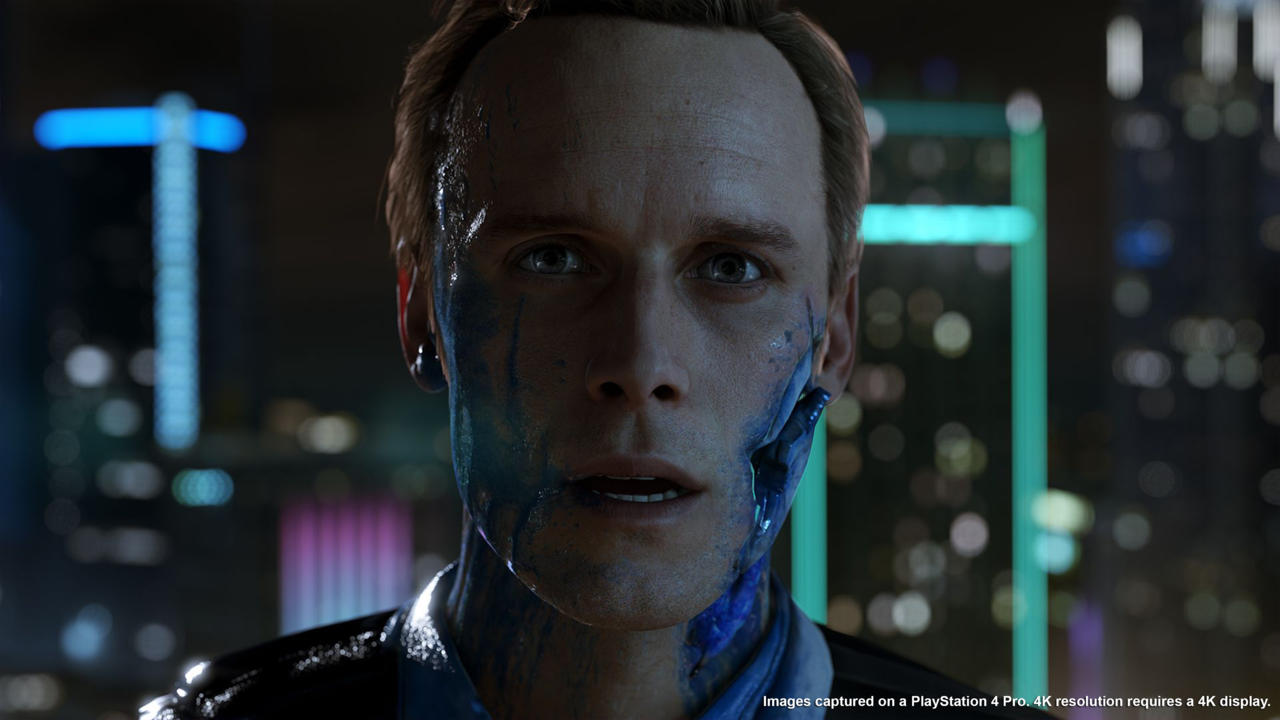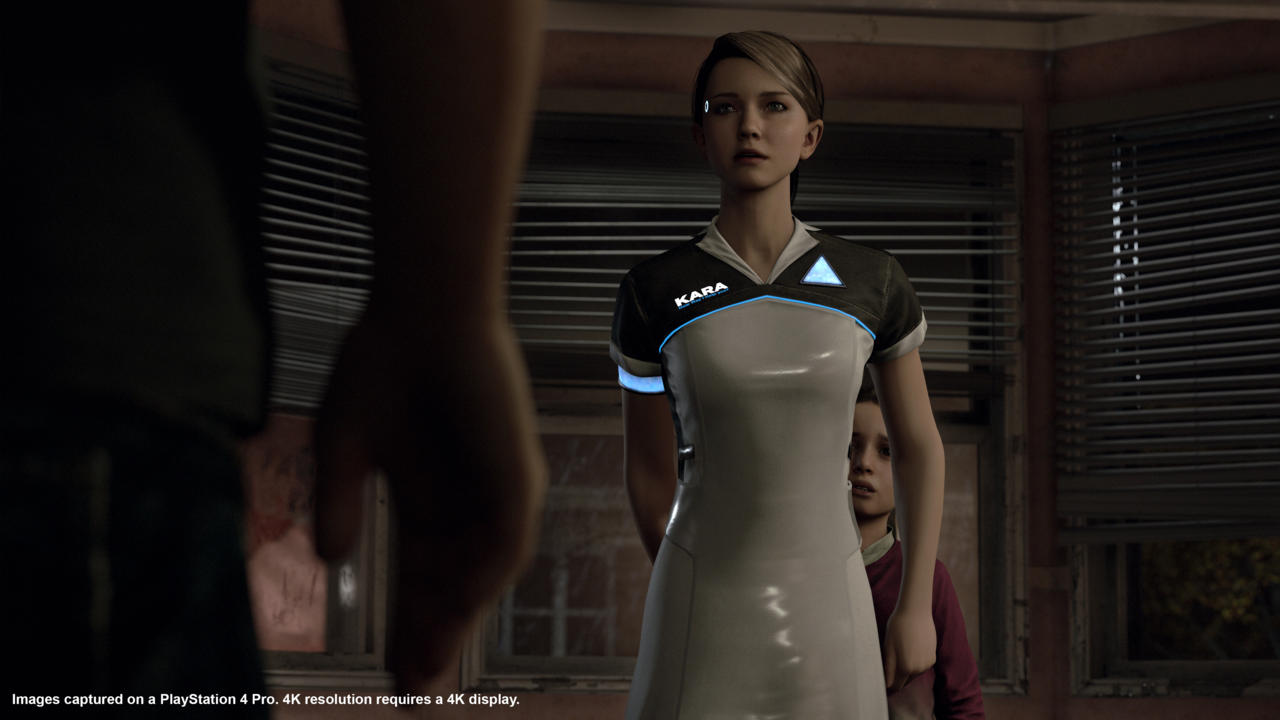Detroit: Become Human is a hard game to show off. A trailer shown during Paris Games Week 2017 depicted child abuse, resulting in some negative press. At PSX later that year, presenters played the game live, demoing a scene also involving a child victim. At one point, the audience was prompted to choose how to handle the hostage situation, to which the winning option (judging by the crowd's cheers) was to shoot the suspect dead. For a lot of people, those two scenes didn't exactly make the best first impression.
At a recent event where the first two or so hours of Detroit were playable, we got to play both of those scenes. They still have issues even when taken in the context of the larger narrative, but the way that story unfolds is undeniably compelling. Part of Detroit's problem is that it's nearly impossible to show that without letting people play it--and make choices--for themselves.

Throughout Detroit, you switch between three different android characters: Connor, a detective, Markus, a caretaker, and Kara, a housekeeper. Though they all have android abilities, like scanning environments for information, they play and are presented very differently; Connor is the most no-nonsense and is followed by a standard, level camera, Kara is more personable with a handheld-camera feel, and Markus gets the more dramatic action-movie treatment and is found in the most striking environments. For a game that emphasizes player choice and branching narratives, it's actually very easy to slip into role-playing each character, and that ends up benefiting the story.
The hostage sequence shown at PSX, which is from Connor's perspective, opens the game. He's robotic and matter-of-fact, and his directive is to figure out what happened so he can negotiate with the "deviant," a corrupted android. As you investigate the crime scene, you'll get a pop-up that shows the probability of the hostage negotiations succeeding, and it goes up as you gain more information. That in turn takes away the urgency you might have had, knowing there's a child on the edge of a very tall building a few feet away.
Slipping into the role of Connor, I ended up making decisions I didn't think I would have made, especially after just watching the scene. I went in thinking I'd go straight for the child, using persuasive skill over violence to handle the situation. Instead, I followed the directions that were given to me: learn what happened and secure the hostage at all costs. I took my time analyzing clues and corpses, using Connor's unique ability to reconstruct what happened in the moments leading up to their deaths, and tricked the deviant into trusting me so he'd release the hostage (at which point a sniper shot and killed him).
It's an intense scene to start with, and I'm still uncomfortable with the outcome of my choices. But starting with the most morally gray of the characters sets expectations for how justice in a world with androids works, and that extends to Kara and Markus. Connor works as a baseline--his scenes are for calibrating your own response to an issue before tackling it with the more emotionally charged characters. It's something that could work really well if it weren't for hiccups in the storytelling itself.

The Kara scene from Paris Games Week deals with child abuse on a much more intimate level, and it falls into basic tropes--which is where the interesting story structure breaks down. The abusive father is a drug addict, and you also find a bottle of antidepressants next to a gun in his room. Plus, the warning label indicates that the medication can cause abnormal behavior (the implication being that the medication has something to do with how he's acting, meaning abusive) which in reality is not a side effect of any common antidepressant.
The frantic camera work, scrappy quick-time fight, and hasty decision-making necessary to protect the daughter, Alice, does give Kara a human touch--which falls in line with Detroit's "what is human" themes. When forced to choose between armed robbery in front of Alice and sleeping in an abandoned car, I found myself heavily weighing the pros and cons of teaching a fictional child that stealing is okay. Had I been playing as Connor, however, I probably would have done the practical thing and get money for a motel room.
This is all to say that Detroit is highly contextual, and its structure makes it possible to experience the same moral dilemmas or tough choices through multiple distinct perspectives. Its actual writing is shaky in many places judging by the first two hours, and it remains to be seen whether its story as a whole is effective, but at the very least it's an intriguing way to tell a story.


















